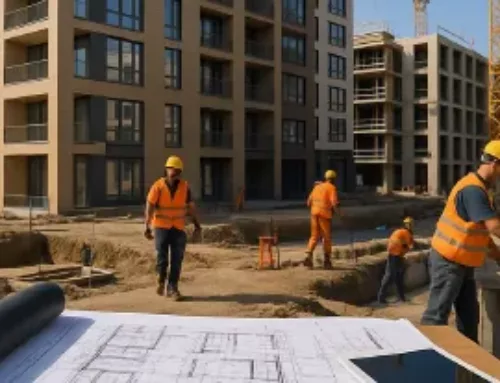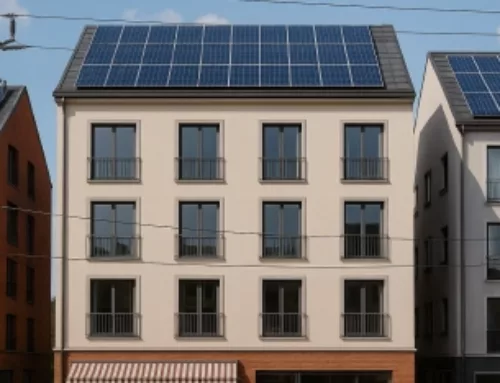The German property industry is undergoing a dynamic process of change in view of the significant changes in the global situation. The fight against climate change can no longer be delayed. A smooth transformation from fossil to renewable is therefore required. Global trouble spots have caused inflation to rise, resulting in significant increases in interest rates. This has brought the boom years of the property industry to an abrupt end. The actual demand for housing cannot be met at present.
Against this backdrop, there are numerous legislative changes and proposals, some of which have been initiated by the federal government or the state governments and some of which are prescribed at European level.
This weekly blog is intended to help keep abreast of the most important developments, particularly from an international perspective.
WEEK 2:
- What’s new on the German property market?
Axel Röpke has already reported on this in the blog (https://tyskret.com/language/da/skal-mit-tyske-gbr-i-det-nye-tyske-selskabsregister/), but because it is also of great importance for the property sector in particular, it should be pointed out once again here: since 1 January 2024, the society under civil law can be entered in a company register (so-called eGbR). Although this is not an obligation, it does create a de facto obligation in the land register procedure. A GbR should only be entered in the land register if it is recorded in the company register. Changes in the land register now also require an entry in the company register. For a GbR wishing to operate in the property sector, entry in the company register will therefore be essential in future.
- What’s going on in Hamburg?
As reported in WEEK 1, Germany now has a Heat Planning Act. § Section 14 of this law provides for a so-called suitability test as one of the first steps. This is primarily intended to identify areas that are unlikely to be suitable for being supplied by a heating or hydrogen network. For these people, this means that it is better to think about a heat pump (or one of the other alternatives provided for in the Building Energy Act). The Free and Hanseatic City of Hamburg has now published its suitability test. Anyone can therefore check what the current status is for their living space.
The suitability test can be accessed here: https://geoportal-hamburg.de/geo-online/?Map/layerIds=1043,29061&visibility=true,true&transparency=0,0&Map/center=%5b564609.2923496087,5933349.1452702%5d&Map/zoomLevel=3
However, it is doubtful whether the category “not very suitable for heating networks”, for example, provides sufficient planning security.
- And what does case law do?
The BGH teaches us what you should not do as an architect – namely provide legal services (just as little as planning services as a lawyer). In a recent decision by the 7th Senate, an architect had drafted a discount clause for a client, which proved to be invalid (due to a breach of general terms and conditions). According to the BGH, the provision of a discount clause for use in contracts with contractors carrying out construction work constitutes a legal service (BGH of 9 November 2023, VII ZR 190/22). The architect is therefore liable for the invalidity of the clause due to a breach of the Legal Services Act (and professional liability is unlikely to help here either). Sometimes less (service) is simply more. The lesson learnt: In an increasingly complex world, restraint is required in non-specialist areas.





